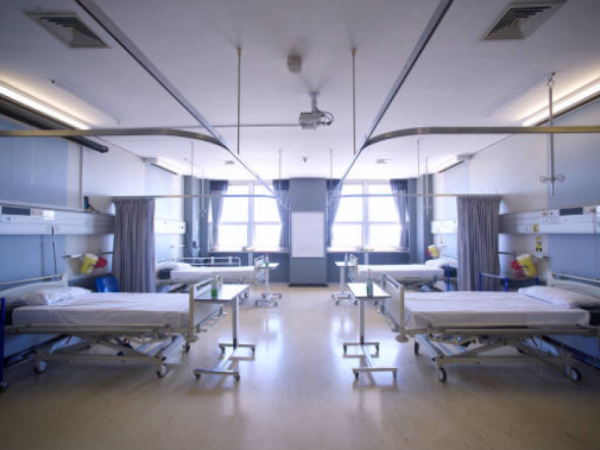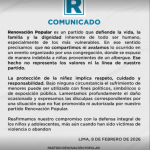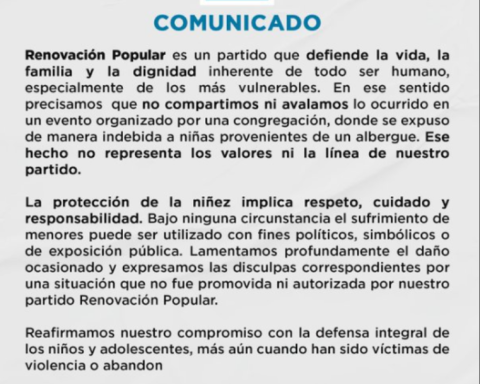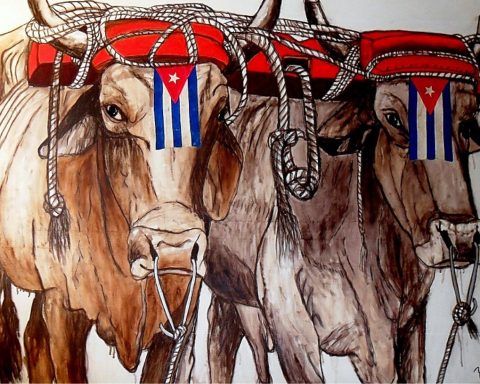The National Government, through the Ministry of Health, set the increase in the Capitation Payment Unit (UPC) for 2025 at 5.36%. These are the per capita resources for care, services and technologies in the Colombian health system.
(See: Uncertainty in the health system by UPC calculation)
After the increase, which at the end of the year revives the controversy over the state of the system, sector experts point out and warn that an increase in the UPC for next year according to the Consumer Price Index figure would further defund the line, a situation which would mainly affect users and patients, since care would be more limited, and the risks for their living conditions would increase.
According to what was said by the portfolio, the decision was made in compliance with current regulations and to guarantee the sustainability of the Social Health Security System (SGSSS), where in addition, Health Promotion Entities (EPS) have the legal obligation to present reliable, clear and timely information, as required by Law 1438 of 2011.
“However, irregularities were detected in the reports, including: abrupt increases in the severity and frequency patterns of health services, high medical expenses without the corresponding justification, and payments for medications above the regulated price.“, highlighted the Ministry.
(See more: Adres is preparing measures to regulate accident claims without Soat)
Augusto Galán, director of the Así Vamos en Salud think tank and former minister of the portfolio, told Portafolio that Having an increase equivalent to inflation leaves the Capitation Payment Unit “very” underfunded.
“The studies that various agents, mainly academics, have indicated is that the increase should be around 16%, given the delay in the adjustment of the Capitation Payment Unit in the last two years. This is added to the increase that has occurred in the provision of services and in demand requirements.”, he indicated.
Likewise, he mentioned that this figure would lead to a “very delicate” situation for the health system and especially for patients. He pointed out that The only thing that has been done is to increase uncertainty in the sector, which has generated a series of inconveniences and difficulties for access to the provision of health services..
(Read also: In November, Adres transferred $6.88 billion to the health system: this is how the accounts go)
Health
iStock
“Today, hospital institutions are in very delicate financing and operational situations. In this way, it is a crisis that is being generated that is costing lives and that is causing disruption for citizens.”Galan opined.
Likewise, Bruce Mac Master, president of Andi, confirmed to this medium that the increase in the UPC corresponds to less than half of the increase in the minimum wage, which was 11%. if the basic salary is added, plus the increase in the transportation subsidy.
(Read also: Acemi says that the quality of health services requires a well-adjusted UPC)
“How are hospitals going to pay their staff? How are they going to cover the deficits that currently exist in the sector in terms of medications or paying for some procedures? The Ministry of Health knows that the system is in crisis today and surely also knows that this increase will increase the deficit by 2025 by more than $10.5 billion“, highlighted the union leader.
Additionally, he reiterated that “surely” they will blame the fact that the reform has not been implemented, that it does not generate a solution to this problem. He added that they can also say that It is the fault of the EPS or the system, which has eventually given rise to cases of corruption.
“The responsibility of the Ministry of Health is to ensure that the system works, that patients can access the system and that they have early and timely care. Unfortunately that is not the attitude we have seen. What we can foresee at this moment is that there will be a crisis that will deepen during the year 2025 unless these elements are corrected, which without a doubt will generate and are already generating a panorama that Colombian patients surely did not expect and who did not want to live”, he assured.
(See: Ignacio Gaitán assumes the presidency of Afidro)

Health
iStock
What the Minister of Health, Guillermo Alfonso Jaramillo and the president, Gustavo Petro, are doing in terms of health, “borders on criminal
For his part, Andrés Forero, representative to the Chamber for the Democratic Center, said that what the Minister of Health, Guillermo Alfonso Jaramillo, and the president, Gustavo Petro, are doing in terms of health, “borders on the criminal.”
(Read: Health reform: implications of considering it a statutory law)
“They only rose to the inflation level of 5.36%, this despite the fact that the President himself had decreed an increase in the minimum wage of 9.54% for next year, knowing that in health $6 or $7 of every $10 will go to pay human talent in health. The coming health crisis will be the exclusive responsibility of the President and his Minister”, he warned.
Now, Andrés Vecino, associate professor at Johns Hopkins University, pointed out that this decision has consequences for the health system in the short term. Some of those mentioned are the increase in access barriers such as EPS canceling contracts with IPS, hospitals closed services, health workers laid off and patients not being treated or not receiving medications.
“Patients and health workers will be the first victims of this deliberate decision by Gustavo Petro and Guillermo A. Jaramillo”said the expert.
(See more: ‘We need spaces where health system actors have a voice’: Abbvie)

Health
iStock
Consequences for patients
Patients Colombia, a movement that brings together 199 patient associations nationwide, reiterated that Increasing that percentage, what the UPC does is widen the gap of what is needed, increasing serious risks for the Colombian health system..
(Read more: Despite technical warnings, the Government seeks to approve health reform in the Chamber)
“In 2025, the UPC will continue to be insufficient and the increase in out-of-pocket spending will be imminent for patients and users of the system. This means that, in the midst of a deepening crisis, patients will have to buy medications or pay in full for the procedures they currently access by paying only a moderate fee.“, they pointed out.
They also assured that the social and citizen participation established in article 12 of the Statutory Health Law 1751 of 2015 was not guaranteed, since the presence of the system actors was not allowed in each phase of the methodology application process and, even, the resolution was not published for comments.
(See: Andi estimates that the UPC should grow 16.9% by 2025, thus stabilizing the operation)

Health
iStock
“We are concerned about the Government’s indifference to this decision. The rights of civil society are being ignored and regulations are being broken that, ultimately, complicate the future of patients in Colombia. It is important to be aware of the actions that can currently have a significant impact on the lives of millions of people who depend on medications and health services to maintain their quality of life.“said Denis Silva, spokesperson for Patients Colombia.
(See: ‘Health at stake’: concerns about possible approval of the reform)
They added that after a late definition of the UPCmore administrative and economic barriers are imposed that force patients to suspend their treatments and increase labor problems for the health workforce.
This situation implied a delay in the transfer of funds to the EPS, which translated into blockages of services and a direct attack on the health of Colombians.generating irreversible effects in the system.
“Health doesn’t wait. At the point we are at, we need concrete actions. Our great fear that we were sentenced to death has materialized. With fewer health resources, more deaths”Silva added.
(Read also: Health collapse: former ministers and former vice ministers say that in 2025 it could be worse)

Health
iStock
Interventions
During this administration, the Government has carried out a series of interventions against the country’s EPS. In detail, this year closes with several of them under these measures, among the most important ones such as Nueva EPS and Sanitas.
In the breakdown, according to information from the Health Superintendence, nine of these entities are in forced administrative intervention and four are in liquidation measures.
(See more: Patients and health workers call for a sit-in due to crisis in the system)
Of the administrative interventions, there is the Nueva EPS that houses 11.3 million members, as well as Sanitas that has at least 5.7 million users, Famisanar with 2.7 million and Emssanar with 1.7 million, Savia Salud with 1.6 million, Asmet Salud with 1.5 million, Coosalud with 3.2 million, SOS EPS with 752,866 and Capresoca EPS with 170,755. That is to say, that these nine EPS alone concentrate nearly 29 million members.
Likewise, President Gustavo Petro, through his social networks, has been giving his opinion on the situation of the health system and the definition of the UPC for next year. According to the president, the resources have been “sufficient” for health, but he responded to the president of AmCham Colombia, María Claudia Lacouture, saying that “Every union leader should know that if we talk about financial insurers we are talking about technical reserves. I ask again, where are the technical reserves of the EPS?”.
(Read: Government would face operational challenges to assume EPS Sura users)
Given this, different experts, such as Mario Cruz, technical vice president of Acemi, have responded to President Petro’s question, indicating that “Technical reserves are president liabilities, they are not invested. What is invested are the resources received through UPC and other concepts. “When liabilities grow faster than the UPC, reserves are not adequately protected.”.

















